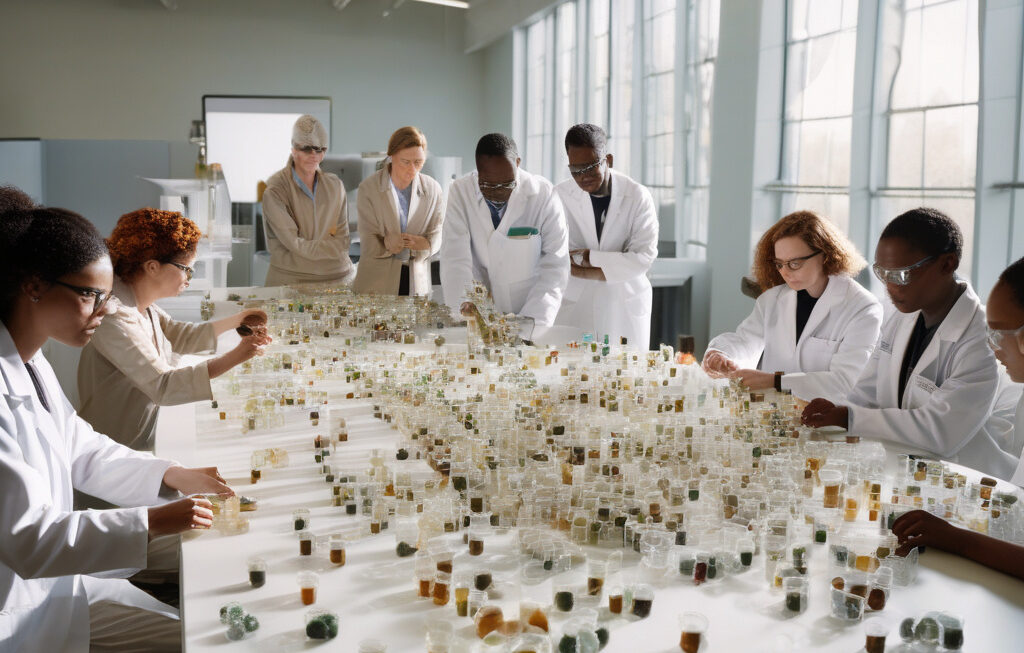ANIPH: Pioneering Sustainable Solutions to Combat Plastic Pollution in Humanitarian Settings
Plastic pollution has become a global crisis, impacting every corner of the planet, including humanitarian contexts where vulnerable populations are at risk. The detrimental effects of conventional plastics on the environment and human health are well-documented, making it imperative to find sustainable alternatives. In this regard, the ANIPH project emerges as a beacon of hope, dedicated to developing safe and eco-friendly biobased and biodegradable plastics for a circular future.
The ANIPH project is at the forefront of innovation, striving to mitigate the negative impacts of plastic materials in humanitarian settings. By harnessing the power of biotechnology and sustainable materials, ANIPH aims to revolutionize the way plastics are produced and managed, paving the way for a more environmentally conscious approach to humanitarian aid and disaster relief efforts.
One of the key objectives of the ANIPH project is to reduce the reliance on traditional plastics that contribute to pollution and environmental degradation. By developing biobased plastics derived from renewable resources such as plant-based materials, ANIPH offers a sustainable alternative that minimizes the carbon footprint and reduces the dependence on fossil fuels.
Moreover, the biodegradable nature of ANIPH’s plastics ensures that they break down naturally over time, eliminating the long-lasting impact of conventional plastics on ecosystems and wildlife. This feature is particularly crucial in humanitarian contexts where waste management infrastructure may be limited, posing challenges for the disposal of single-use plastics.
In addition to their environmental benefits, ANIPH’s biobased and biodegradable plastics prioritize safety and health, especially in vulnerable communities. Conventional plastics contain harmful chemicals that can leach into food and water supplies, posing serious risks to human well-being. By using non-toxic and biocompatible materials, ANIPH ensures that its plastics are safe for use in sensitive environments, such as refugee camps and disaster-affected areas.
Furthermore, the circular approach adopted by the ANIPH project emphasizes the importance of recycling and reusing plastics to create a closed-loop system that minimizes waste generation. By promoting a sustainable lifecycle for plastics, ANIPH sets a new standard for responsible production and consumption practices in humanitarian settings, inspiring other organizations to follow suit.
The significance of the ANIPH project extends beyond environmental and humanitarian domains; it represents a paradigm shift towards a more sustainable and resilient future for all. By challenging the status quo of plastic production and advocating for innovative solutions, ANIPH exemplifies the power of science and technology in addressing complex global challenges.
In conclusion, the ANIPH project stands as a testament to human ingenuity and determination in the face of adversity. By pioneering safe and sustainable biobased and biodegradable plastics for humanitarian contexts, ANIPH offers a glimmer of hope in the fight against plastic pollution. As we strive towards a more sustainable future, initiatives like ANIPH remind us of the transformative potential of innovation and collaboration in creating a better world for present and future generations.
The article is originally posted on Innovation News Network.
#ANIPH, #PlasticPollution, #SustainableSolutions, #HumanitarianAid, #CircularEconomy












